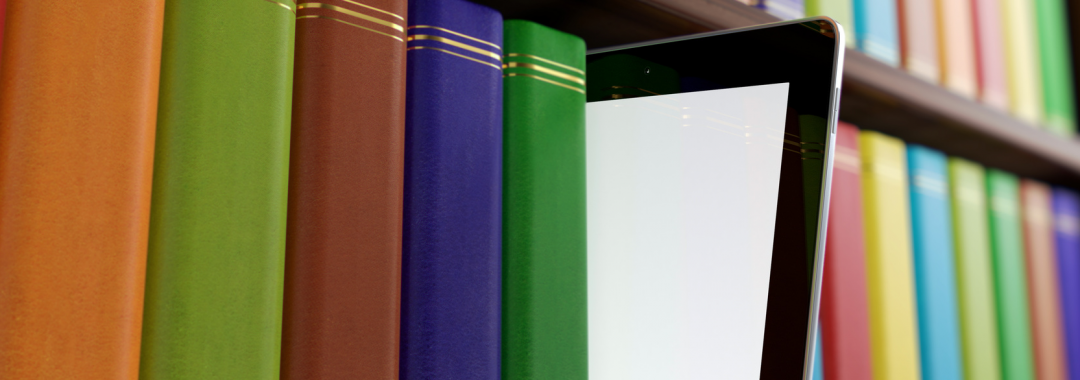1st Workshop on Intelligent Techniques At LIbraries and Archives (IT@LIA 2015)
Huge amounts of very heterogeneous data are nowadays available in either born-digital or digitized format, both in the Web and in personal collections, ranging from structured to semi-structured and unstructured contents in multiple media and languages.
The informative content and size of this data are ever growing and they raise challenging problems for their effective and efficient management as well as for extracting and exploiting the information they convey.
All aspects of human knowledge and interests are involved, from cultural heritage to administration, from leisure to work, from government to industry. As a consequence, everyday activities more and more heavily rely on the availability and exploitability of these data. Part of this data has already been collected into digital libraries, others still needs to be properly organized and made available to stakeholders.
However, even using a digital library system for managing and organizing the contents, we cannot let it operate alone, but we need to make it interoperate with other collections and systems as well as to (semantically) link its contents to other sources in order to provide more powerful end-user services.
Therefore, both the amount and complexity of the data and the key needs they should be exploited for require next generation digital libraries to embed advanced and intelligent techniques to provide powerful functionalities to the stakeholders.
Developing such techniques requires the strict interaction and cooperation of many different areas and skills: standardization, document processing, natural language processing, library development and organization, multimedia management, fruition, semantic processing, etc. Artificial Intelligence techniques may provide significant support in many of these areas, in order to face some of the complexities of this domain.
The Italian communities in Artificial Intelligence and Digital Libraries have developed significant skills in their own areas, but they still have not started a stable and strict cooperation. This workshop aims at bridging this gap, bringing together researchers from different fields that may provide a contribution in this landscape. People from the Digital Libraries community may find a venue to highlight problems and needs, and people from Artificial Intelligence may find a real-world domain in which proposing advanced solutions aimed at tackling significant problems.
This one-day workshop will include an invited talk and a panel session, and will propose paper presentations and demos.
General areas of interest include, but are not limited to, the following topics:
- Representing and Extracting Information from Digitized Cultural Heritage Artifacts
- Digital Document Processing
- Extracting Semantics, Entities, and Patterns from Large Collections
- Exploring Semantic Web and Linked Data for Linking Cultural Heritage Artifacts
- Metadata Aggregation Models, Integration and Disambiguation
- Ontologies and Knowledge Organization Systems, Networked Information
- Social Networking, Web 2.0 and Collective Intelligence in Digital Libraries
- Digital Libraries as Source of Big Data for Humanities
- Scientific Data Curation, Citation and Scholarly Publication
Official Web Page: http://italia2015.dei.unipd.it/
For general information about paper submission instructions, please refer to the Call for Papers page.
Program
IT@LIA will be held in Room 4 - Ground Floor, Palazzo Trotti Mosti (Trotti Mosti Palace): Corso Ercole I d'Este, 37 - Building Plan
The program is downloadable here.
| 22 September 2015 | ||
|---|---|---|
| 09.00-09.30 | Opening | |
| Section I | Logical Approaches (Chair: Nicola Ferro) | |
| 09.30-10.00 | Discovering Knowledge through Multi-modal Association Rule Mining for Document Image Analysis | Corrado Loglisci, Michelangelo Ceci, Lynn Rudd and Donato Malerba |
| 10.00-10.30 | An Abstract Argumentation-based Strategy for Reading Order Detection | Stefano Ferilli and Andrea Pazienza |
| Coffee break | ||
| Panel | Digital Libraries and Digital Archives: Problems and Challenges for AI Approaches (Chair: Stefano Ferilli) | |
| 11.00-12.30 | Panelists: - Maristella Agosti (University of Padua, Italy) - Fabio Ciotti (University of Roma Tor Vergata, Italy) - Floriana Esposito (University of Bari, Italy) - Maurizio Lana (University of Piemonte Orientale, Italy) - Nicola Orio (University of Padua, Italy) |
|
| Lunch break | ||
| Session II | Collection Management (Chair: Maristella Agosti) | |
| 14.30-15.00 | A Sentiment Polarity Analyser based on a Lexical-Probabilistic Approach | Berardina De Carolis, Domenico Redavid and Angelo Bruno |
| 15.00-15.30 | Linked Open Data Framework for Serendipity in History of Art Research | Gianmaria Silvello |
| 15.30-16.00 | Large-scale Information Extraction for Assisted Curation of the Biomedical Literature | Fabio Rinaldi |
| Coffee break | ||
| Session III | Knowledge Management (Chair: Floriana Esposito) | |
| 16.30-17.00 | Introducing Distiller: A Unifying Framework for Knowledge Extraction | Marco Basaldella, Dario De Nart and Carlo Tasso |
| 17.00-17.30 | Using Ontologies as a Faceted Browsing for Heterogeneous Cultural Heritage Collections | Francesca Tomasi, Fabio Ciotti, Marilena Daquino and Maurizio Lana |
| 17.30-18.00 | Closing |
Organising Committee
Stefano Ferilli
University of Bari "Aldo Moro"
Nicola Ferro
University of Padova

